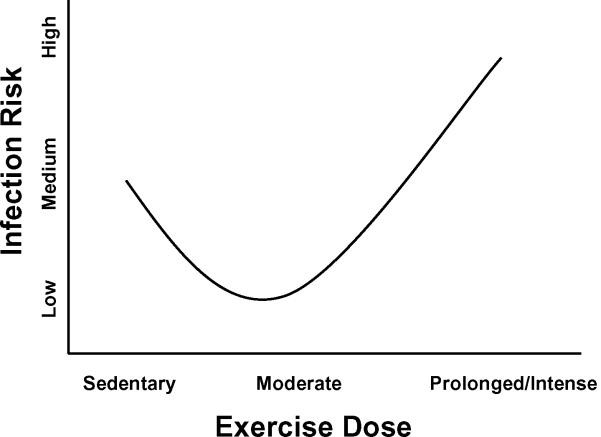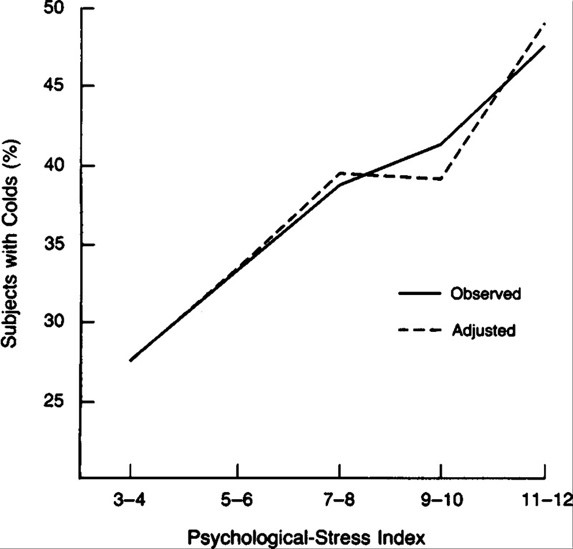7 Ways to Boost Your Immune System Today

As Summer passes the baton to Fall, it’s time to start preparing for the cold and flu season. Although the peak of the cold and flu season may still be a few months away, it’s never too early to start taking steps to protect yourself from these nasty bugs. After all, when it comes to these life-disrupting (and sometimes, life-threatening) germs, prevention is the best cure, and since a properly-functioning immune system is a linchpin to doing just that, here are 7 strategies to help boost your immune system.
The Impact of Cold & Flu Season
For starters, the cold and flu are viral infections, and that means that that antibiotics, which are effective at killing off bacteria, are useless in treating them. That may seem like common knowledge, but I have personally witnessed antibiotics be prescribed for the flu at an emergency clinic.
While both the cold and flu affect the upper respiratory tract (e.g., nose, throat, sinuses), most are familiar that symptoms of the flu can be much more severe, involving fever, muscle aches, sore throat, fatigue, chills, vomiting, and more. Not only do these infections leave you feeling lousy, they can sideline you for a week or longer, seriously impacting your life and productivity.
Every year, a seasonal flu epidemic occurs, beginning in October and peaking in January, and the annual epidemic poses an enormous health burden and a tremendous economic impact. In a study published in the journal Vaccine, the Centers for Disease Control and Prevention (CDC) found that the flu results in an average of 610,660 life-years lost, 3.1 million hospitalized days, and 31.4 million outpatient visits. From a financial standpoint, each year, the flu leads to an average of average of $10.4 billion in direct medical costs, and the annual projected lost earnings due to illness and loss of life amount to $16.3 billion. All in all, the total annual economic burden of the flu is estimated to amount to $87.1 billion in the US alone.1
What’s more, the CDC reports that the flu may claim as many as 48,000 deaths each year.2 By comparison, the average number of motor vehicle deaths averages less than 35,000. While certain populations (e.g., people age ≥ 65, people with existing medical conditions, pregnant women, young children) may be at a greater risk of developing serious complications, anyone can get the flu, and serious problems related to the flu can happen at any age.
According to the CDC, cold and flu viruses are spread mainly by droplets made when people with the cold or flu cough, sneeze, or talk. These droplets can land in the mouths or noses of people who are nearby. Also, a person may be exposed to the cold or flu by touching a surface or object that has a virus on it and then touching their own mouth, eyes, or possibly their nose.
Now, just because you have been exposed to a virus doesn’t mean that you’ll “catch” it. If your immune system is running full-throttle, it can protect you from these viruses, as well as other germs. What we do and eat affects immunity on several different levels. For instance, those with a poor diet will get sick more often and more severely than a person who eats a healthier, more nutrient-dense diet. Along those lines, we’re going to be talking about key strategies that can boost your immune system, as well as some common lifestyle factors that can impair your immune system, making you more susceptible to getting an infection, getting hit harder, and keeping you out longer.
But First, a Little Story…
Prior to two years ago, I can’t tell you the last time I’d had a serious cold let alone a serious bout of the flu. Sure, I had some sniffles here and there, but c’mon, I live in Austin, Texas, which is not just the live music capital of the world, it’s also earned a reputation as the allergy capital of the world! (Yes, even Austinites can find something to complain about.)
But just a little over two years ago, we were blessed with our amazing, bright, funny, and loving daughter Parker Ashlee. As you can imagine, she’s filled our lives with more joy and our hearts with more love than we could ever imagine. She’s also filled our house with more “bugs” than I ever thought possible.

Yes, these little munchkins have a knack for picking up, carrying, and spreading an endless number of germs — many thanks to their curious, inquisitive nature and lack of personal hygiene skills (at a young age). And, no, I don’t recommend following them around with anti-everything sanitizers, wipes, sprays, and such. One could argue that such extreme “hygiene” practices make things worse; in fact, some have suggested that we’re too clean for our own good. But as catchy and compelling as the hygiene hypothesis was, most agree that it’s an overly simplistic theory that needs to be abandoned.3
But I digress…where was I? Ah, yes, many thanks to my little germ-infested munchkin, the flu-bug reared its ugly head on our household in 2017. And it was a doozy. So bad, in fact, that it took more than 6 weeks (although it felt more like 6 years) before we could put the Boogie Wipes and Snot Sucker away. And before we knew it, we got them right back out of the closet when, less than 2 weeks later, our poor 9-month-old daughter caught a cold.
It felt like hell in a handbasket seeing her go through all that, not to mention the weekly (and sometimes twice-per-week) visits to the doctor’s office. What’s worse, my wife and I were battling the flu, and subsequently, a cold during the same time period. It was a rough, rough 3 months or so.
Needless to say, I was determined not to get bitten twice by the same bug; we were determined to be prepared. And while there were many things we did differently, here are 7 strategies that boost your immune system to successfully stay healthy this past cold and flu season.
7 Strategies to Boost Your Immune System
1. Exercise…But Not Too Much
It’s no secret that being sedentary makes you more susceptible to upper respiratory tract infections (URTI), such as the cold and flu, but did you know that heavy exercise—either acute or chronic—can also impair the body’s internal defense network making avid exercisers and hard-training athletes more likely to contract URTI?4
It’s true; the relationship between exercise and URTI looks like a “J” curve, with under- and over-exercising increasing one’s risk. Heavy exertion increases the risk of URTI because of negative changes in immune function and elevation of the stress hormones (e.g., epinephrine, cortisol). On the other hand, there is mounting evidence that moderate amounts of exercise may decrease one’s risk of URTI. This way, you can boost your immune system without the negative impact on stress hormones.

2. Take a Chill Pill
Stress, it’s a bugger, and even though the Goldilocks Principle typically applies (too much and too little can be harmful), stress can increase your susceptibility to contracting the cold and flu. For example, a study published in the prestigious New England Journal of Medicine, which examined the relationship between psychological stress and the frequency of the common cold among 394 healthy participants intentionally exposed to respiratory viruses, found that psychological stress was associated with an increased risk of URTI and the common cold in a dose-dependent manner.6 In other words, the more stressed the participants felt, the more likely they were to get sick.

Not surprisingly, psychological stress is associated with increased vulnerability to getting the flu, and studies have shown that stressful life events, daily hassles, and negative mood states are predictive of experiencing more flu-like symptoms. What’s more, it appears that the longer that stress persists, the greater the risk of infection.7
Researchers believe that the link between stress and susceptibility to getting sick may be mediated by stress-induced disruption of the regulation of pro-inflammatory cytokines. Said differently, chronic stress (which can come in many forms, including physical, mental, and emotional) decreases the immune response to a single acute stressor. In other words, the body builds up a tolerance and becomes resistant to the signal. Since it’s been inundated over time, it just doesn’t recognize it as a big deal, which leads to suppression of a number components of the immune system (e.g., natural killer cell activity, T and B cell function, salivary IgA concentration, and more).8
All that is to say that regularly practicing stress management is a linchpin in keeping you healthy. Set boundaries, practice yoga, meditate, take walks, breathe deeply and slowly, and exercise to help boost your immune system and keep your stress levels in a healthy range. For example, forest bathing (which involves taking a stroll outdoors, traditionally in a wooded area) has been shown to significantly boost the immune system (i.e., natural killer cell activity) for up to 30 days after a 3-day camping trip in the forest.9
Keep in mind that psychological stress is all about how we perceive and interpret information and events. In other words, you may not be able to control the world around you, but you can control your response and attitude. For more on reframing and stress management, listen to our BioTrust Radio podcast on 12 Proven Techniques to Conquer Everyday Stress.
3. Get Your Beauty Rest
Looking for a surefire way to get sick this cold and flu season? Don’t get enough sleep. Sleep quality is thought to be an important predictor of immunity, and I’m confident that the broken, sleep-deprived nights taking care of our young daughter when she was sick made my wife considerably more vulnerable to catching the cold ourselves.
A study published in JAMA Internal Medicine, which examined the relationship between sleep duration and the incidence of contracting the cold virus among 153 healthy men and women, found that participants who slept 7 hours or less were nearly 3 TIMES more likely to develop a cold than those who slept 8 hours or more.10 The researchers also found that sleep efficiency (which is the percentage of time a person actually sleeps between lying down to sleep and waking up the next morning) played a tremendous role. Specifically, they found that participants with poorer quality of sleep (> 92% efficiency) were 5 ½ TIMES more likely to develop a cold than those with 98% or better efficiency.
Sleep deprivation leads to reduced natural killer cell activity, suppressed interleukin-2 production, and increased levels of circulating pro-inflammatory cytokines. Simply put, inadequate, poor quality sleep is a near certain way to suppress your immune system and increased your odds of getting sick. Based on this information, if you want to boost your immune system and stay healthy, it seems like most people would be well advised to practice healthy sleep hygiene habits and aim for about 8 hours of sleep each night.
4. Load Up on Immune-Boosting Nutrients
Here’s a handful nutrients that are critical to fueling a competent, robust immune system along with the best sources of each. Of course, you don’t have to eat ALL these foods every day, but it’s a good idea to consume a variety of them regularly to boost your immune system.
- Vitamin A helps boost the immune system by improving gut barrier function, reinforcing mucus secretion, enhancing natural killer cell activity, and reducing susceptibility to infection. Sources: sweet potatoes, carrots, dark green leafy veggies, winter squash, bok choy, cantaloupe, bell peppers, and broccoli.
- Vitamin C is probably the most widely recognized nutrient to help boost the immune system, and there’s no question it’s a key player in proper immunity function. Sources: pomelo, oranges, grapefruit, clementine, lemons, limes, tangerines, papaya, bell peppers, broccoli, Brussels sprouts, strawberries, pineapple, kiwifruit, cantaloupe, cauliflower, dark green leafy veggies, cabbage, and tomatoes.
- Vitamin D influences both the innate and adaptive immune responses, and research shows that supplementation with vitamin D during winter months can protect against the cold and flu.11 While non-burning sun exposure is the best way to increase levels of vitamin D, that’s obviously not practical in many places during the cold and flu season. Along those lines, it’s a good idea to supplement with 2,000 – 5,000 IU per day between October and May, as well as consume foods like salmon, sardines, tuna, eggs, and mushrooms, which are the best dietary sources of vitamin D.
- Vitamin E can help boost your immune system by fighting free radicals and preventing lipid peroxidation. Sources: spinach, Swiss chard, turnip greens, beet greens, mustard greens, kale, collard greens, sunflower seeds, asparagus, almonds, broccoli, bell peppers, and tomatoes.
- Zinc is arguably the most powerful nutrient to boost the immune system, as studies show that supplementation with zinc can significantly reduce the number of colds a person experiences annually.12 Sources: beef, lamb, sesame seeds, pumpkin seeds, lentils, garbanzo beans, and cashews.
- Selenium, like zinc, is a critical player in many of the body’s biological processes, and it is particularly well-known for its role in the body’s antioxidant defense network, which is vital to boost the immune system. Sources: Brazil nuts, eggs, beef, sardines, scallops, and shrimp.
5. Get Your Gut in Order
Perhaps you’ve heard that the digestive tract is home to over 70% of your immunity. So, it makes sense that taking steps to get your digestive health in order is mission critical if you want to boost your immune system and stay healthy. While we’re still figuring out all the pieces of the gut health puzzle, which is highly individualistic, it seems quite clear that maintaining a healthy balance of gut bacteria is a key step in the process.
Along those lines, one of the most common and highly regarded benefits of probiotics (those “healthy” gut bacteria that populate your digestive tract) is that they support a healthy immune system. For instance, probiotics help reinforce gut barrier function, support a healthy inflammatory response, enhance antimicrobial activity, and promote immunomodulatory activity.13 Multiple studies have shown that supplementation with probiotics prevent episodes of the common cold and other URTIs.14,15 Keep in mind that not all probiotics are created equally, and you can also increase your intake of heathy microbes by consuming fermented foods like sauerkraut, pickles, kefir, yogurt, kombucha, and kimchi.
Of course, we can’t talk about probiotics and gut health without shining the spotlight on prebiotics, which are indigestible compounds (like fibers and polyphenols) that are fermented by probiotics and selectively stimulate the growth of healthy gut bacteria while helping reduce the growth of pathogenic bacteria.16 In simple terms, prebiotics are like fuel for healthy gut bacteria and serve as food for probiotics.
In a nutshell, prebiotics help increase levels of “good” bacteria while helping reduce the amount of “bad” bacteria, which promotes a healthy balance of gut bacteria, and as mentioned above, that’s a key piece of the puzzle in our efforts to boost the immune system. Prebiotics can be found in a variety of plant-based foods, such as apples, bananas, asparagus, onions, garlic, legumes, oats, and more.
6. Get Rid of the “Junk Food”
While I’ve kept you long enough already, I’d be remiss if I didn’t mention some of the so-called foods that I think are essential to remove if you really want to boost your immune system. Kind of like chronic stress, these dietary factors, which can also contribute to poor gut health, contribute to persistent, unhealthy levels of inflammation and disrupt the body’s natural immune response to resolve inflammation.
Without getting too thick in the weeds, I’d suggest limiting your consumption of the following (which are typically found in processed foods NOT in whole, minimally processed foods, which are the ones more likely to boost your immune system):
- Refined carbohydrates (e.g., flour) and sugar
- Refined, bleached, and deodorized vegetable oils (e.g., canola, corn, cottonseed, safflower, soybean, sunflower, and vegetable oils)
What about getting a flu vaccination? That’s a bit of a tricky, contentious, and somewhat polarizing question. Personally, my family and I opt not to get vaccinated. However, I can see where it would be implicated, particularly in high-risk individuals who may develop serious flu-related complications (such as older adults and residents of nursing homes).
Having said that, I do think it’s important to point out that vaccination is not a surefire way to prevent the flu. For instance, last year’s vaccine effectiveness studies found that the flu vaccine only protected against the flu 10 – 25% of the time.17,18
7. Keep Your Hands Clean
My dad always used to say, “You can pick your nose, you can pick your friends, but you can’t pick your friend’s nose.” Believe it or not, there’s quite a bit of wisdom in that quip, especially as it relates to coming down with the cold and flu.
After all, these viruses are most commonly spread through hand-to-hand and hand-to-face contact. You know the drill; you come in contact with someone or with something that someone has touched, sneezed on, or coughed on, and the next thing you know, you’re sniffling, sneezing, coughing, aching…Ack!
While you can do your absolute best to keep your hands clean—washing them regularly—but as my dad implied, you can’t wash your friend’s grubby paws.
How to Boost Your Immune System: A Recap
Fortunately, just because you’ve been exposed to a virus doesn’t mean you’re bound to “catch it.” Truth is, a well-functioning immune system is key to fending off pathogenic bacteria and viruses, and you can begin taking steps to boost your immune system — and protecting yourself from the cold and flu — by putting these strategies to use today!









